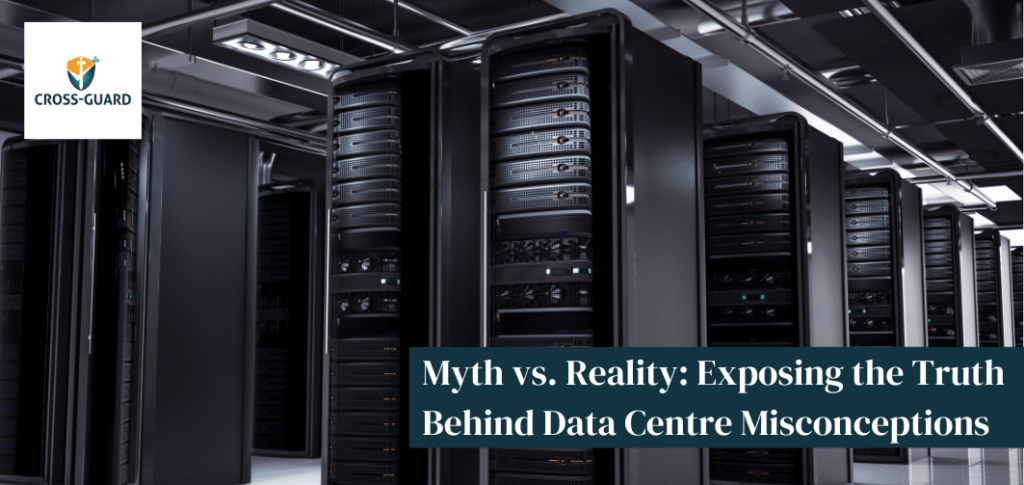Myth vs. Reality: Exposing the Truth Behind Data Center Misconceptions

In today’s modern, digital economy, data centers are crucial in supporting various aspects of our daily lives. From storing and processing large volumes of information to enabling the functioning of numerous digital services, data centres are essential to our interconnected world.
Despite their significance, there are several misconceptions about data centres that are worth exploring to gain a better understanding of their role and impact. Let’s delve into prevalent misconceptions about data centres to shed light on this critical infrastructure.
Is it true that only large tech companies have Data Centres?
The mainstream media often shines a spotlight on data centres owned by very large technology companies. As a result, there’s a common misconception that only these giant tech businesses are involved in operating data centres. This portrayal overlooks the significant presence of data centres run by smaller companies and organisations.
In contrast to popular belief, the notion that only large businesses rely on data centre facilities is a misconception. The truth is that nearly every medium to large business that operates scalable digital infrastructure today heavily depends on data centre facilities in some form or another. These facilities play a critical role in supporting the infrastructure and operations of these businesses, making them an indispensable component of the modern business landscape.
All Data Centres are in remote locations
When you ask an average person to describe a data centre, they might envision a large building situated in a remote, isolated area. While it is true that many data centres, especially the larger ones, are indeed located in remote regions, it’s worth noting that data centres can also be found in highly populated areas. For instance, cities like New York are home to data centres, proving that they can exist in urban environments as well.
Do Data Centres have a huge negative impact on the environment?
There is a growing awareness of the significant electricity consumption of data centres. Many articles are drawing attention to the environmental impact, particularly in terms of carbon emissions. This heightened coverage could potentially create the perception that data centres are major contributors to environmental harm due to their substantial energy consumption.
It is indeed true that data centres consume a substantial amount of electricity. However, it’s important to note that not all of this energy is derived from “dirty” sources. When considering the broader energy landscape, data centres collectively account for only about 1% of the total energy consumption. In stark contrast, the transportation industry is responsible for approximately 28% of the world’s energy usage.
It can be argued that data centres are a more environmentally friendly option for hosting digital infrastructure compared to alternative approaches. This is primarily due to the efficient operation of data centres. When 10,000 servers are housed within a data centre designed for optimal energy usage, it is likely to result in lower carbon emissions compared to running the same number of servers dispersed across hundreds of on-premises server rooms. These decentralised server rooms are much more challenging to optimise for sustainability and do not benefit from economies of scale in energy consumption. Therefore, the centralised approach of data centres can lead to more efficient energy usage and reduced environmental impact.
SHARE

